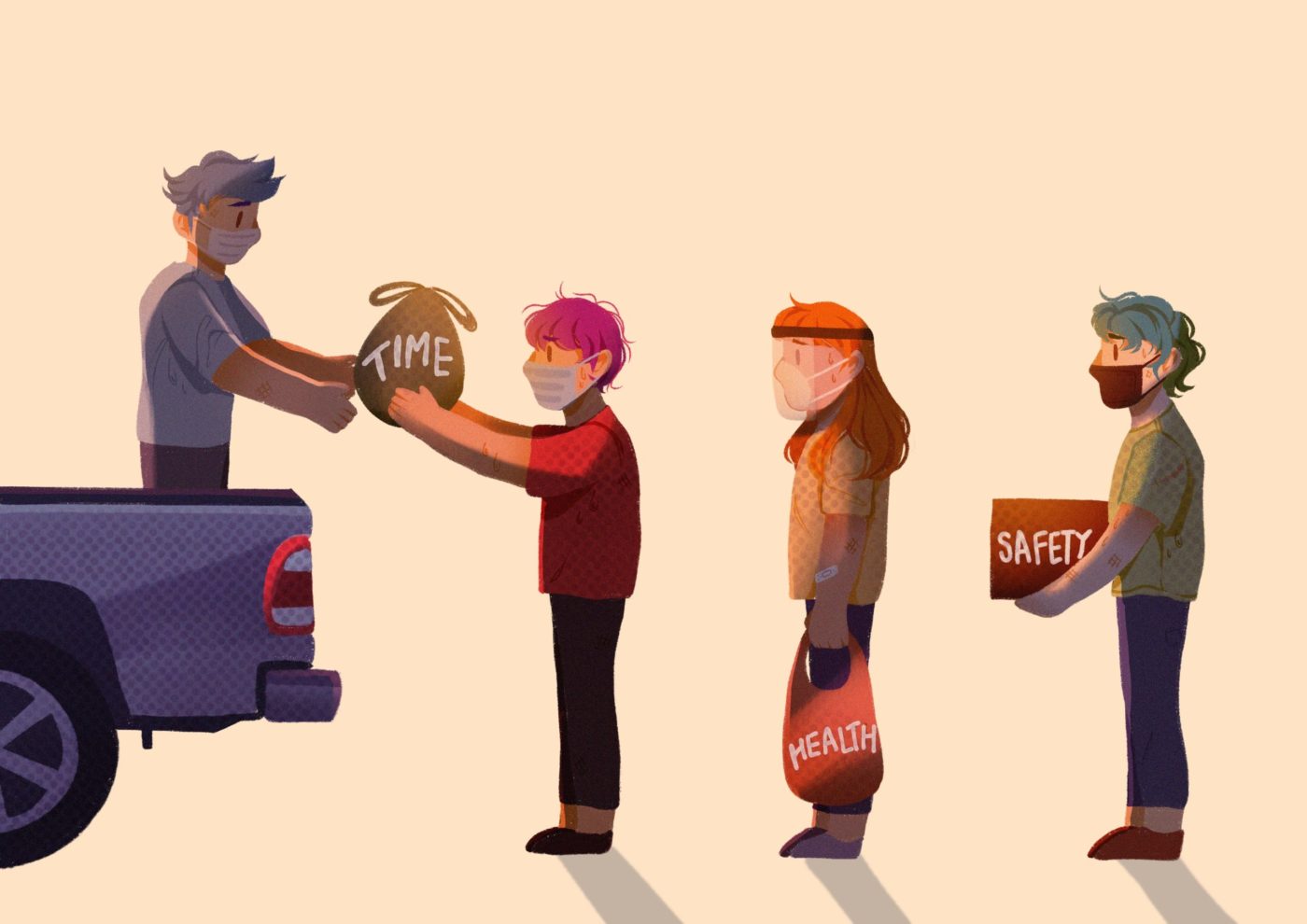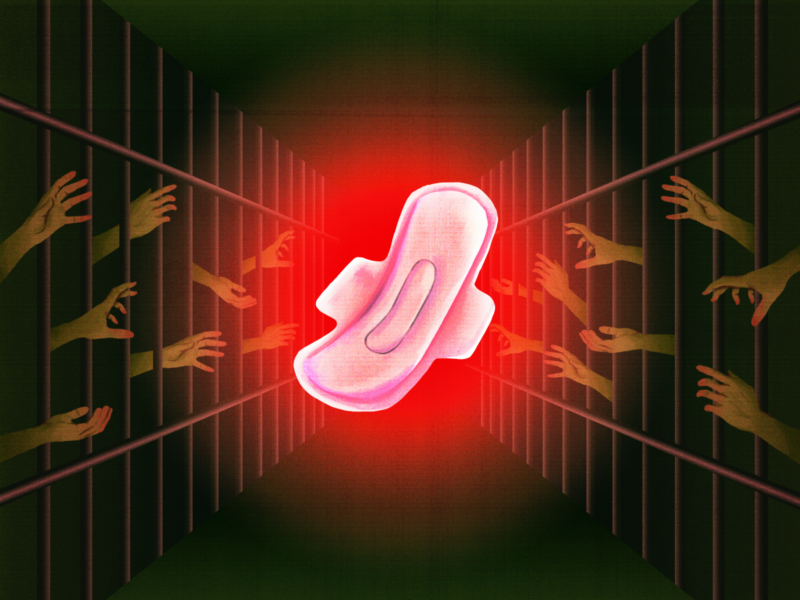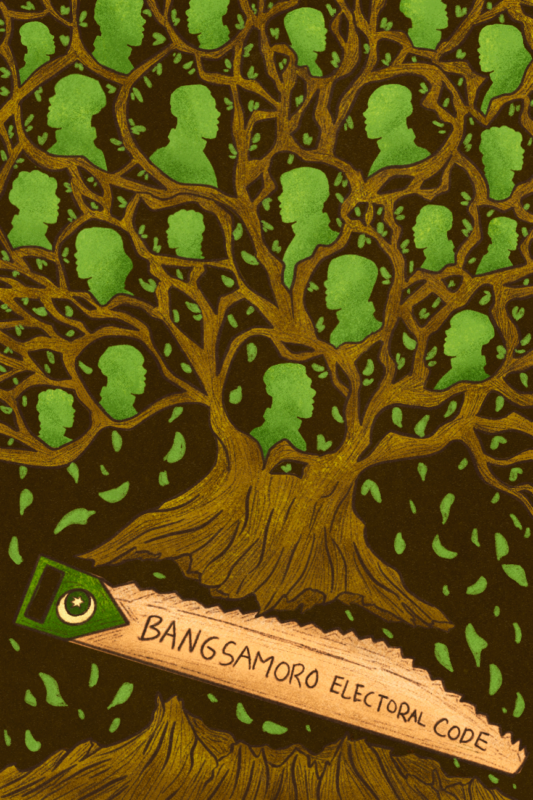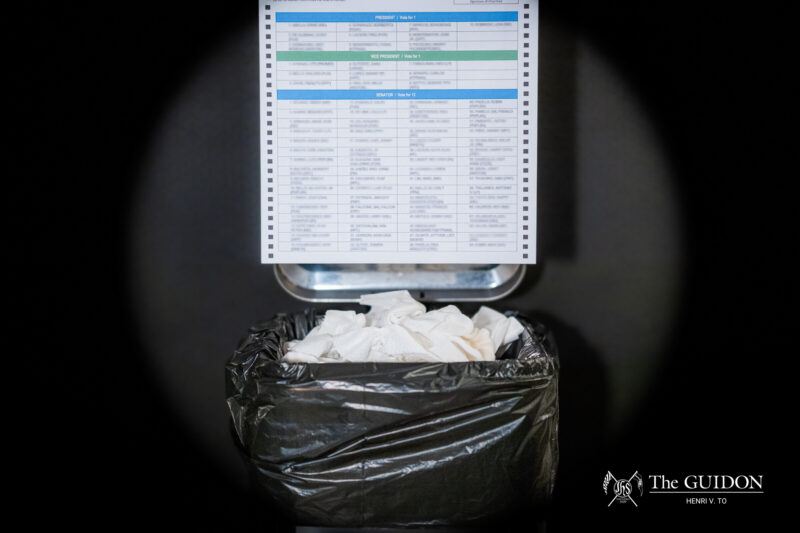DESPITE THE return to general community quarantine, COVID-19 cases in the Philippines continue to rise. With a COVID-19 vaccine still far out of arm’s reach, Filipinos continue to face the unemployment woes and lack of access to resources—all to get by in the advent of the “new normal.”
The COVID-19 pandemic has called for some to put on their masks and capes to become volunteers. Eager to safeguard the community, volunteers from different areas have stepped forth to meet dire needs.
Masks before capes
What started as a small initiative from a household kitchen grew into a team of over 500 volunteers called Frontliners’ Kitchen—a youth-led organization that aims to provide nutritious meals for health workers. Together with her team, Founder Jeanill Migraso (2 BS PSY) endeavors to nourish frontliners with fresh and healthy meals.
“Even though there were a lot of donations for hospital supplies, there were less donations for the well-being of the frontliners themselves,” Migraso explains. Upon coordination with hospitals, they are able to calculate the amount of food needed by medical frontliners and deliver them to their respective beneficiaries. Donations from people online help finance the meals’ expenses, which are accounted for via transparency reports posted on their Facebook page.
Apart from initiatives dedicated to health workers, there are also movements that aim to update the public on government interventions in response to crisis—especially in a time when there is an increasing demand to ensure fair governance. The GoodGovPH’s Bantay Bayan initiative heeds this call for transparency and accountability by monitoring local government units’ response to the pandemic. “Our members were worried that the crisis might be used as an excuse for government officials to commit corrupt practices, human rights violations, or political maneuvering,” explains GoodGovPH Executive Director Dexter Yang in an interview with CNN.
In pursuit of this objective, volunteers report crucial data in a digestible manner. Bantay Bayan website developer Tanzell Go (3 BS MIS) explains that the information gathered from Facebook posts and survey responses must be strategically presented on a map. Using color-coded markers to represent each local government unit’s (LGU) effectiveness, it allows viewers to easily digest the performance of LGUs.
Initiatives like those of Frontliners’ Kitchen and Bantay Bayan are easily lauded by onlookers. These acclamations, however, are not enough to compensate for their sacrifices.
The price tag of service
When it started to become clear that the pandemic would last longer than anticipated, postponing volunteer operations put into question. The steady increase of COVID-19 cases and the demand for more donations meant placing the lives of the volunteers themselves and their loved ones at greater risk.
“I had to go to the market everyday and get exposed to a lot of people. One night, my parents asked me if it was okay for me to stop; they begged me to,” Migraso recalls. She was worried as well—her parents are getting older, while she and her siblings are asthmatic.
“There’s that apprehension of endangering your family in exchange for doing what you want for others. Which one do I choose? Other people, or the people precious to me?” she recounts. In the end, her parents realized what the cause meant to her and agreed to increase safety precautions by using personal protective equipment and practicing regular disinfection.
Despite the risks these volunteers expose themselves to, society tends to neglect the struggles behind the scenes and glorifies them instead. The danger in romanticizing such hurdles then manifests in allowing volunteers to compensate for shortcomings in public service. From this, Go stresses the need for volunteer-led initiatives such as Bantay Bayan. “There’s been news that LGUs weren’t handling relief goods well, since there were missing resources that didn’t go [to intended beneficiaries],” he explains.
Although the project gives an avenue for feedback, the solution still lies in whether government units would recognize the community’s pleas and practice transparency in executing their programs—all while addressing the disproportionate impacts of the pandemic.
What heroes heed
To extend service for community welfare is never an easy choice for volunteers to make. Many of them go by uncompensated while still being overworked. Considering this, we must do more than just recognizing their efforts. For Migraso, she encourages everyone to act on their initiative and passion. “If we wait for [society] to change as it is, we might be changed by the world, instead of us changing [it],” she reminds.There is now a greater focus on halting the spread of COVID-19, but it is just as important to remind ourselves that the volunteers of today are more than the causes they champion and enact. Although volunteerism alleviates deep-seated issues within communities, it only offers band-aid solutions to systemic imbalances that warrant better policy-making and review.







